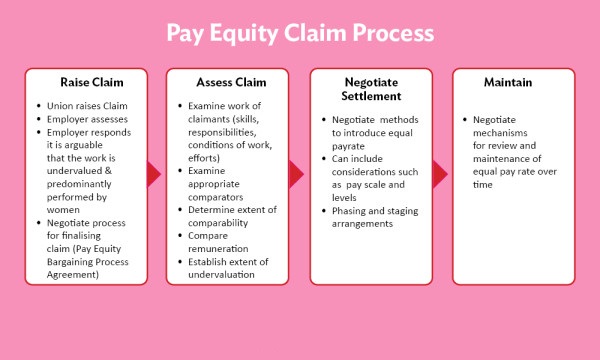The fight for equal pay has been raging for decades with incremental progress but continued barriers. The Paycheck Fairness Act aimed at strengthening equal pay protections, has come a long way through persistence and advocacy – though the journey isn’t over yet.
Early Efforts Towards Pay Equity
The origins of the pay equity movement date back over 50 years. Here’s a brief timeline of early milestones:
-
1963 The Equal Pay Act is passed, prohibiting pay discrimination between men and women performing equal work
-
1964: Title VII of Civil Rights Act bars employment discrimination based on race, color, religion, sex and national origin.
-
1978: The Pregnancy Discrimination Act bans employment discrimination related to pregnancy and childbirth.
-
1994 The Violence Against Women Act bolsters protections and services for victims of domestic violence and sexual assault
While these measures established critically important rights and protections, significant loopholes remained around equal pay enforcement.
Persistent Pay Gaps Spur New Legislation
Despite having basic legal protections against pay discrimination on the books, data continued to reveal major pay disparities in practice:
-
In the 1960s, women earned 59-64% of what men earned on average.
-
In 1980, women still earned just 60% of men’s earnings.
-
By 2000, women’s earnings had only risen to 77% of men’s.
Continued pay gaps made it clear that stronger legislation was needed to truly enforce pay equity.
The Paycheck Fairness Act is Born
In response to minimal progress on closing the pay gap, the Paycheck Fairness Act was first introduced in Congress in 1997 by Representative Rosa DeLauro.
Key provisions of the original bill included:
-
Barring employers from retaliating against employees who discuss or inquire about pay.
-
Allowing employees to voluntarily share pay data with each other.
-
Requiring employers to demonstrate pay gaps are job-related, not sex-based.
-
Strengthening penalties for equal pay violations.
An Uphill Battle Despite Bipartisan Support
The Paycheck Fairness Act had bipartisan support from its early days. When it was first introduced in 1997, it had 148 cosponsors from both parties.
However, that wide support didn’t translate into quick passage. The Paycheck Fairness Act was introduced in some form in every Congress since 1997, but faced repeated roadblocks to becoming law.
Reasons for the long battle included:
-
Concerns over increased litigation and regulation for businesses.
-
Disagreements over the extent to which pay gaps stem from discrimination versus other factors.
-
Uncertainty around how pay data would be collected and used.
Progress Towards Passage
While passage of the Paycheck Fairness Act has been elusive, some key milestones demonstrate momentum:
-
2009: The Act passed the House for the first time, though it stalled in the Senate.
-
2014: President Obama signed two Executive Orders to address pay gaps for federal contractors.
-
2019: The Act passed the House again with bipartisan support, but again died in the Senate.
-
2022: The Act passed the House for the third time on its 25th anniversary. Its future in the Senate remains uncertain.
Why The Paycheck Fairness Act Matters Today
While progress has been made, full pay equity is far from realized. Here are some statistics that demonstrate why this issue remains urgent and important:
-
Women still earn just 84 cents for every dollar paid to men. For women of color, gaps are even wider.
-
At the current rate of progress, women won’t reach pay equity with men until 2059.
-
About half of U.S. employees report being either discouraged or prohibited from discussing pay at work.
-
Employees discussing pay can lead to greater pay transparency, reduced bias, and potentially 4-5% reduction in pay gaps.
What You Can Do To Support Equal Pay
Achieving pay equity will require persistence and continued advocacy. Here are some tips for getting involved:
-
Contact your representatives to urge support of the Paycheck Fairness Act. Your voice matters.
-
Speak up in your workplace about pay gaps or retaliation for discussing wages. Know your rights.
-
Support organizations furthering pay equity via advocacy, education and empowerment. Donate or volunteer if you can.
-
Talk about this issue. Have open and honest conversations about pay at work and in your community. Break down taboos.
-
Spread awareness on social media. Follow hashtags like #PayEquity and share content from pay advocacy groups.
Pay discrimination affects us all. Through collective action, we can accelerate change towards the pay equity we deserve. Progress takes time, but the fight continues.

